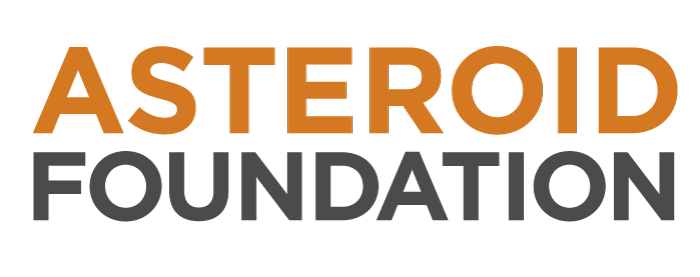Our Story
Our Mission
Our Story
Asteroid Day is a dynamic awareness and educational program to inspire the world about asteroids – their role in the formation of our universe, how we can use their resources, how asteroids can pave the way for future exploration and finally how we can protect our planet from asteroid impacts. Asteroid Day events are held on 30 June each year to mark the anniversary of the 1908 Tunguska impact. Asteroid Day events are largely independently organized around the world for people of all ages and are mostly free-of-charge. Asteroid Day is a program run by the Asteroid Foundation, a Luxembourg nonprofit organization.
Asteroid Day was co-founded in 2014, by Dr. Brian May, astrophysicist and lead guitarist of QUEEN, together with Danica Remy, President of B612 Foundation, Rusty Schweickart, Apollo 9 Astronaut, and filmmaker Grig Richters. In 2016, the United Nations officially designated Asteroid Day as the international day of awareness and education about asteroids. Together with the United Nations, space agencies, schools and universities Asteroid Day is organized by networks of supporters who host events worldwide on 30, June and any other day of the year that the independent groups determine.
To initially launch the Asteroid Day education programs in 2014, members of the asteroid community drafted and released a petition to gather public support for asteroid education and called on governments to accelerate the funding of asteroid discovery programs. Today, this petition, the 100X Asteroid Declaration, has been signed by hundreds of prominent individuals around the world, including leaders in science, technology, and business, and more than 125 astronauts.
Thanks to its partners and supporters, and particularly to the Government of Luxembourg, where the Foundation is headquartered, Asteroid Day has made significant strides educating the world about asteroids. Through our work we share information and teach about the science, opportunities, and risks of asteroids. Since the first events in 2015, the movement has grown exponentially. Through Asteroid Day, we continue to inspire people and young minds to look up into the sky and to be excited about our Solar System.
The story behind Asteroid Day
Narrated by astrophysicist
Neil deGrasse Tyson.
Our Mission
Asteroid Day takes place annually on June 30. It is a global awareness campaign where people from around the world come together to learn about asteroids, the impact hazard they may pose, and what we can do to protect our planet, families, communities, and future generations from future asteroid impacts. Asteroid Day is held each year on the anniversary of the largest impact in recent history, the 1908 Tunguska event in Siberia. A relatively small asteroid, about 40 meters across or the size of a modest office building, devastated an unpopulated area about the size of a major metropolitan city. Regionally organised large and small events are held on Asteroid Day, and range from lectures and other educational programmes to live concerts and broader community events, to raise public awareness of the need for increased detection and tracking of asteroids.
The 100x Asteroid Declaration*, calling for this action, has been signed by hundreds of astronauts, scientists, artists and leaders in business and technology as well as thousands of private citizens. Employing existing and new technology to detect and track asteroids and demonstrating deflection capabilities to prevent future asteroid impacts could be humanity’s greatest achievement. Asteroid Day could one day help save ALL the species on this planet by highlighting the work that is currently being done locally and globally in this field. Asteroid Day highlights men and women who dedicate their lives to the science and technology that will enable planetary defense. You can help by organising a local event and by signing the 100X Declaration. We’re continuing to learn about the evolution of the solar system and the role of asteroids in space and Earth’s history. Small impacts occur regularly and NASA shows that world-wide efforts to date have found about 95% of the asteroids that could end life on Earth as we know it, were one to impact. Based on what’s known about the NEO population and Earth’s impact history, scientists predict that Earth will experience another large-scale impact someday in the future – they just don’t know exactly when. Our goal is to raise public awareness about asteroid science and plans for planetary defense.
ESA astronaut Tim Peake talks about Asteroid Day.
100x Asteroid Declaration: The 100x is an aspirational goal. Current asteroid survey projects are finding about 1500 asteroids per year that can come near the Earth. It is not likely that we will detect 100 times this number of asteroids per year with our current capabilities.

